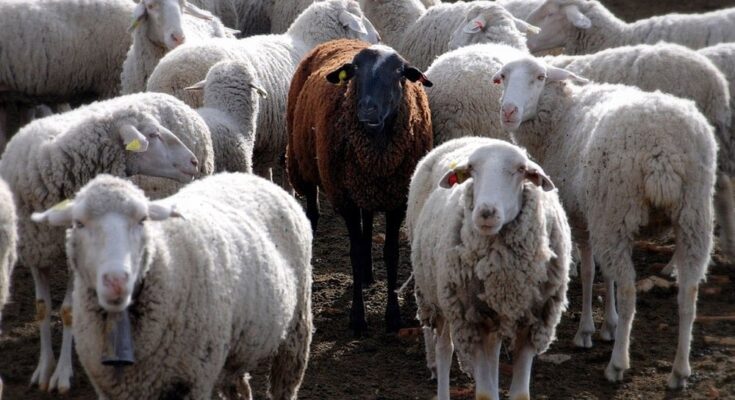
Greece has banned the transportation and reproduction of sheep and goats across the country for 10 days after detecting more than 100 pox infections, the agriculture ministry said.
The measures are precautionary and are aimed at containing the spread of the virus, which does not affect humans, the ministry said in a statement late on Tuesday.
So far, 104 cases have been detected, most of them in the northern area of Evros. About 17,500 animals have been culled. The disease was also detected in animals as far south as the prefectures of Magnissia and in Corinthia.
In Magnissia and Corinthia, livestock breeders, dairy producers, slaughterhouses and feed suppliers have been warned of the smallpox breakout, while veterinarian teams are carrying out inspections in the protection zone of a 3 km radius and the surveillance zone of a 10 km radius.
Greece bans sheep, and goat transport for ten days
“Starting today, we announce a complete ban on the movement of sheep and goats for breeding, fattening, grazing and slaughter, throughout the Greek territory for 10 days,” Agriculture Minister Costas Tsiaras said.
“Our country faces one more serious epidemiological threat, as a spike in smallpox has been registered among sheep. Smallpox is an extremely contagious illness that – I underline this – does not threaten public health, as it is an illness that is not transmitted to humans. Unfortunately, however, it is particularly contagious in animals,” Tsiaras said.
He added the ban on transportation would ensure that the spread of the disease is limited and that the crisis would be dealt with in the best possible way, as happened with the plague of small ruminants.
Sheep pox is a highly contagious infectious disease of goats and sheep that can be transmitted with direct contact with an infected animal and consumption of contaminated food, or through tools, vehicles, or products.
In June, Greece imposed similar restrictions to contain a viral infection known as “goat plague”.
How will the production of feta cheese be affected?
Greek officials sought to dispel fears that feta cheese– the “mainstay of the Mediterranean diet” – could be “imperiled” due to the disease, said The Guardian in a recent report.
The outbreak “won’t endanger feta exports”, said Christos Tsopanos, a senior figure at the Association of Greek Livestock (SEK). “Our country has 14 million goats and sheep, more than any other [EU] state.”
According to Eurostat, last updated in 2022, the EU has about 11 million goats in total. But Greece did boast the highest EU numbers: about 25 percent of the bloc’s total goat population. Romania and Greece have the second and third largest sheep herds in the EU behind Spain, with 10.2 and 7.3 million respectively, according to the most recent figures.
The outbreak is only the second of its kind ever recorded in the EU; the first was in 2018 in Bulgaria. But there have also been outbreaks in Turkey and Georgia.
The Greek agriculture ministry said an investigation was underway to determine the source of the outbreak, but did not rule out “suspicious imports” from abroad.
Related: The Abundance of Goats in Greece and the Therapeutic Qualities of Goat Milk



